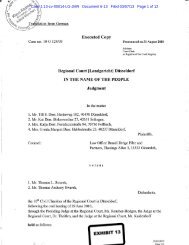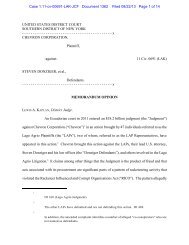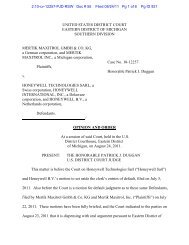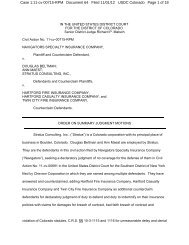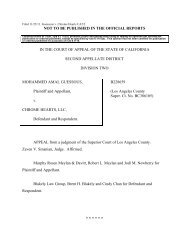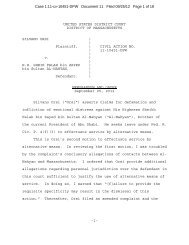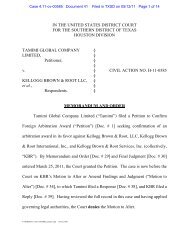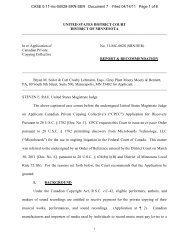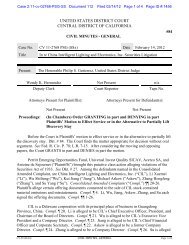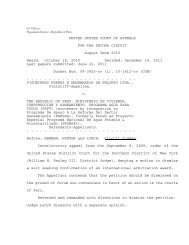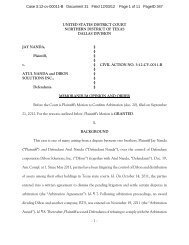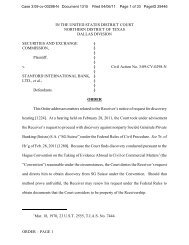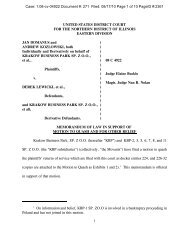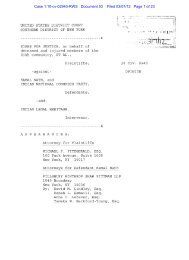Hyundai Securities Co. v. Lee (Cal. Ct. App. 2013) - Letters Blogatory
Hyundai Securities Co. v. Lee (Cal. Ct. App. 2013) - Letters Blogatory
Hyundai Securities Co. v. Lee (Cal. Ct. App. 2013) - Letters Blogatory
You also want an ePaper? Increase the reach of your titles
YUMPU automatically turns print PDFs into web optimized ePapers that Google loves.
In opposition, <strong>Lee</strong> argued that judgment could not be entered on a “petition” rather<br />
than on a motion for summary judgment or trial. <strong>Lee</strong> also argued his affirmative<br />
defenses, and provided law and facts in support of his allegations. Among them, <strong>Lee</strong><br />
asserted that he was entitled to an offset because <strong>Hyundai</strong> allegedly recovered a large<br />
sum of money in a separate Korean lawsuit in which <strong>Lee</strong> was not a party; <strong>Hyundai</strong> lacked<br />
standing; the Korean Judgment was not compensatory in nature, but rather was a fine or<br />
penalty arising out of securities violations—“the penal conduct for which <strong>Lee</strong> went to jail<br />
in Korea”—and therefore the judgment cannot be recognized under the Act; and the<br />
postjudgment interest rate of 20 percent awarded in the Korean Judgment was<br />
“repugnant” to <strong>Cal</strong>ifornia public policy. The trial court sustained <strong>Lee</strong>‟s evidentiary<br />
objections without prejudice and requested further briefing on several issues.<br />
<strong>Hyundai</strong> filed a supplemental brief and a declaration from another Korean attorney<br />
on the nature of the Korean action. <strong>Lee</strong> objected to the new declaration challenging the<br />
declarant‟s qualification to give a declaration on Korean law described in the declaration,<br />
and asserted that the Korean law the attorney provided did not resolve the issues raised<br />
by <strong>Lee</strong>. The trial court did not rule on the supplemental objections.<br />
Following oral argument, the trial court granted “the motion” and rejected the<br />
request for a statement of decision because “[t]his is specifically being entered without a<br />
summary judgment, without a trial, and has no entitlement to a Statement of Decision.”<br />
After further submissions on <strong>Hyundai</strong>‟s proposed judgment, a judgment was entered. A<br />
timely appeal followed.<br />
A. Standard of Review<br />
DISCUSSION<br />
Questions of law regarding the application and requirements of the Act are<br />
reviewed de novo. (See People v. ex rel Lockyer v. Shamrock Foods <strong>Co</strong>. (2000) 24<br />
<strong>Cal</strong>.4th 415, 432; Ghirardo v. Antonioli (1994) 8 <strong>Cal</strong>.4th 791, 799-801; MacIsaac v.<br />
4



